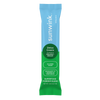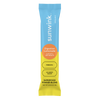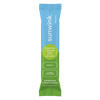Tips and Tricks on How To Debloat After a Meal

Bloating, as annoying as it may be, happens to all of us. Even if you follow a healthy diet, there may be days when you eat something that just doesn’t sit right with you, making you feel a little more puffy than usual.
But just because bloating is common doesn’t mean you have to deal with it. There are actually many great ways to debloat after a meal so you can go about your day feeling awesome — as you absolutely should!
To help relieve bloating after meals, Sunwink put together a list of expert tips to speed up digestion and flatten your belly. Read on for 10 ways to debloat after a meal!
1. Drink Some Fluids
Drinking plenty of fluids throughout the day is one of the most basic ways to reduce bloating. That’s because when you’re dehydrated, your body will retain water — a major cause of bloating. Dehydration can also slow down digestion, making food settle in your tummy for longer.
While the standard recommendation is to get nine glasses of water per day, we all have different hydration needs. So, follow your body’s thirst cues to know how much water you really need.
And if you don’t like the taste of water, our delicious Sparkling Superfood Tonics can make for a delicious way to get your fluids in.
2. Go for a Walk
We get the temptation to take a nap after a large meal, but that’s actually one of the worst things you can do for digestion. On the contrary, it’s important to keep moving after meals to speed up digestion.
We’re not talking about going to a spin class right after dinner — a brisk walk is more than enough. One study found that just 15 minutes of walking is all you need to speed up digestion.
3. Eat Some Anti-Bloating Foods
Instead of following up your dinner with a sugary dessert, try one of the following superfoods to debloat fast:
- Ginger: The mighty ginger root is a powerful way to soothe the stomach after eating a heavy meal. It works by reducing inflammation, which can be brought on by dairy, spices, and chemical add-ins. According to some studies, ginger can block several enzymes in the body that produce bloating. Try it in our Detox Ginger Sparkling Superfood Tonic.
- Dandelion: Dandelion is a root that’s long been used to reduce gas, bloating, and constipation. It’s a type of natural diuretic, which makes it excellent for those experiencing water retention. And there’s plenty of it in our Digestion Lemon Sparkling Superfood Tonic.
- Pineapple: Not only is pineapple delicious, but it contains plenty of digestive enzymes that can break down digestion-causing foods. One study even found that pineapple can help ease inflammation in the digestive tract, which may be a cause of persistent belly bloat.
- Bananas: Bananas are packed with potassium, a mineral that can help to balance out water retention. Not only that, but they’re a great source of prebiotic fiber, helping to feed the “good” gut bacteria (called probiotics) in your G. I. tract.
Another great way to stop bloating before it starts is to eat more probiotic foods. These include yogurt, kefir, and kombucha. If probiotic foods don’t sound appetizing, you can also take a probiotic supplement to promote digestive wellness.
In general, consuming plant-based foods and foods rich in soothing properties, like turmeric, is a great way to beat the bloat. You may also want to stay away from salty and GMO foods, as these are common triggers of bloat.
4. Get a Workout in
We definitely don’t recommend working out right after a meal, but try to make it a regular part of your routine. Consistent exercise is one of the best ways to boost your metabolism and keep your digestive system running smoothly. Aim for three or four weekly workouts to see your post-meal bloating vanish.
5. Take an Epsom Salt Bath
Adding some Epsom salts to your bath can help draw out excess sodium, which may reduce water retention. This is thanks to the high magnesium content in Epsom salts, which attract saline. We recommend soaking for about 20 minutes for the best results.
6. Get Some Sleep
When you’re sleep-deprived, you increase stress — a major cause of gut issues that can lead to a bloated belly. This can lead to many issues, like inflammation, food intolerances, and tummy aches. Plus, sleep deprivation hikes ghrelin and leptin — two major hunger hormones.
So, how much sleep do you really need? Well, that really varies with each unique body. As a rule of thumb, if you don’t wake up feeling refreshed, you need to hit that snooze button!
7. Avoid Chewing Gum
Gum causes bloating for several reasons.
In the first place, when you chew gum, you swallow air. And when that air ends up in your digestive tract, it can cause bloating. Second, most gums contain sugar alcohols, like xylitol, which can cause bloating in some people.
So, if you notice extra bloating after chewing gum, you might want to cut out this habit.
8. Skip the Artificial Sweeteners
Artificial sweeteners are known to cause gut issues, including bloating. If you feel bloated after drinking a diet soda, for example, you may want to swap it for a healthier option. Try one of our Sparkling Superfood Tonics as an alternative — which are made with 0 artificial sweeteners.
9. Cut Out Processed Carbs
Foods made with refined carbs — like bread, pasta, and pastries — are low in carbs. Plus, they can promote inflammation in the digestive tract. They’re especially a problem for those who are sensitive to gluten. So, sub out those processed carbs with slow-digesting options like sweet potatoes, beans, and whole grains.
You might also want to ask your doctor about food intolerances. Lactose intolerance and gluten intolerance are common intolerances that can lead to trapped gas. One way to find out is to go lactose and gluten-free and see how you feel.
10. Eat Smaller Meals
If you’ve ever noticed that large meals leave you super bloated, you may be onto something. Giving your body more than it can digest may leave food in your digestive tract, making you feel inflated.
To prevent this, try eating more frequent, but smaller, meals throughout the day. Focus on eating until you’re about 70% full, saving the rest for later. As a bonus, eating more frequently can speed up your metabolism, another way to boost digestion.
On a similar note, it’s also important to pay attention to how you eat.
We get it: When you’re ravenous, you want to scarf down everything in sight. But not chewing your food thoroughly can introduce air to your G. I. tract while leaving huge chunks of food that will be difficult to break down. This can be a major contributor to bloating and excess gas.
So, when you eat, try to slow down as much as possible, making sure to chew each bite slowly and thoroughly. As a bonus, this can also have a calming effect on your mind — so you really enjoy your meal.
Beat Bloat With Sunwink Superfoods
Bloating may be common, but that doesn’t mean you have to deal with it. Fortunately, there are many ways to speed up digestion after a meal. Try going for a brisk walk, having some of our Detox Ginger Sparkling Superfood Tonic after your meal, and eating smaller meals throughout the day.
And if all else fails, Sunwink’s got your back. Our Sparkling Superfood Tonics and Superfood Powders are made with a potent blend of superfoods that can improve your gut health, speed up digestion, and keep bloating at bay. Oh, and they taste absolutely delicious, too!
Sources:
Water | The Nutrition Source | Harvard T.H. Chan School of Public Health
Ginger in gastrointestinal disorders: A systematic review of clinical trials | PMC
Bromelain treatment decreases neutrophil migration to sites of inflammation | NCBI






